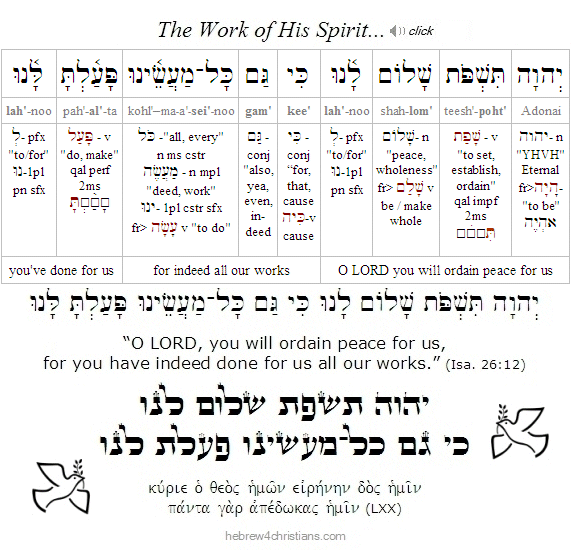|
According to midrash (Shemot Rabbah), as a very young lad Moses was once seen throwing Pharaoh's gold crown to the ground. Upon learning of this apparent act of insolence, Pharaoh devised a test to see if the child understood what he was doing. He therefore commanded that a platter with a piece of gold and a glowing piece of coal were to be presented before Moses and ordered the little boy to choose one. If Moses chose the gold, it would imply that he understood its value, and therefore he would be killed. On the other hand, if Moses chose the burning coal, he would be spared since he was unable to differentiate between gold and a glowing piece of coal. Moses began to reach out for the gold when an angel pushed his hand aside and he grabbed the coal instead. He then immediately put his hand in his mouth, but that burned his lips and tongue so badly that he had a permanent speech impediment as a result.
Later, when God commissioned Moses to speak to the children of Israel, he protested to the LORD that he was "heavy of mouth and heavy of tongue" (i.e., kevad peh ve'kaved lashon: כְּבַד־פֶּה וּכְבַד לָשׁוֹן) and therefore was unable to eloquently speak on behalf of the LORD to Pharaoh (Exod. 4:10). But the LORD said to him, "Who has made man's mouth? Who makes him mute, or deaf, or seeing, or blind? Is it not I, the LORD? Now therefore go, and I will be with your mouth and teach you what you shall speak" (Exod. 4:11-12).
When the time arrived for Moses to actually go before Pharaoh to declare God's message to let the Israelites go, he again protested to the LORD that he was a man of "uncircumcised lips" (עֲרַל שְׂפָתָיִם), an idiom that meant that he regarded his lips to be of no acceptable use to God. (Ironically the prophet Isaiah later had his lips burned to purify them to speak on behalf of God; Isa. 6:6-7). In this connection it is interesting to ask why God did not simply heal Moses of his impairment. After all, the LORD had earlier told him that He had the power to make the blind to see, the deaf to hear, and the mute to speak...
According to many of the classical Jewish commentators, God did not cure Moses of his stuttering because He wanted the Israelites to know that he was a divine messenger. When he spoke in the Name of the LORD, the stuttering miraculously entirely disappeared and Moses spoke with fluent ease. This was to teach the people not to trust in human oratory or wisdom, but rather in the power of God (see 1 Cor. 2:1-5). Just as the Apostle Paul, the "Moses of the New Covenant," was given a "thorn in the flesh" (σκόλοψ τῇ σαρκί) to keep him humbly relying upon God for his sufficiency to serve (2 Cor. 12:7-10), so Moses was rendered entirely dependent upon the LORD but thereby became a "man of words" who spoke with "circumcised lips."
"O LORD, you will establish peace for us, for You have indeed done for us all our works" (Isa. 26:12). We must always remember that God does the work "for us" (לָּנוּ) and we are His witnesses. Salvation is "of the LORD," and is not the result of our own efforts. Anything of eternal value comes from God alone, who is the beginning and end of grace. "Not by (human) might, nor by (human) power, but by my Spirit, says the LORD of hosts (Zech. 4:6).
יְהוָה תִּשְׁפּת שָׁלוֹם לָנוּ
כִּי גַּם כָּל־מַעֲשֵׂינוּ פָּעַלְתָּ לָּנוּ
Adonai · teesh·poht · shah·lohm · lah'·noo
kee · gam · kohl - ma·a·sei'·noo · pah·al'·ta · lah'·noo

"O LORD, you will establish peace for us,
for You have indeed done for us all our works."
(Isa. 26:12)
Hebrew Study Card

Hebrew Lesson
Isaiah 26:12 Hebrew reading (click):
Note that God does the work "for us" (לָּנוּ) and we are His witnesses... Salvation is "of the LORD," and is not the result of our own efforts. Anything of eternal value comes from God alone, who is the beginning and end of grace. "Not by (human) might, nor by (human) power, but by my Spirit, says the LORD of hosts (Zech. 4:6). If we lose sight of this truth, we are again made subject to the "law of sin and death" (תּוֹרַת הַחֵטְא וְהַמָּוֶת), that is, the futile principle of self-justification that constitutes the "wheel of suffering." We can escape this cycle only when we accept the truth about our condition and trust God for our deliverance. It is the "law of the Spirit of Life" (תוֹרַת רוּחַ הַחַיִּים), that is, the inner reign of the Holy Spirit, that sets us free from the reign of sin that leads to death...
|




